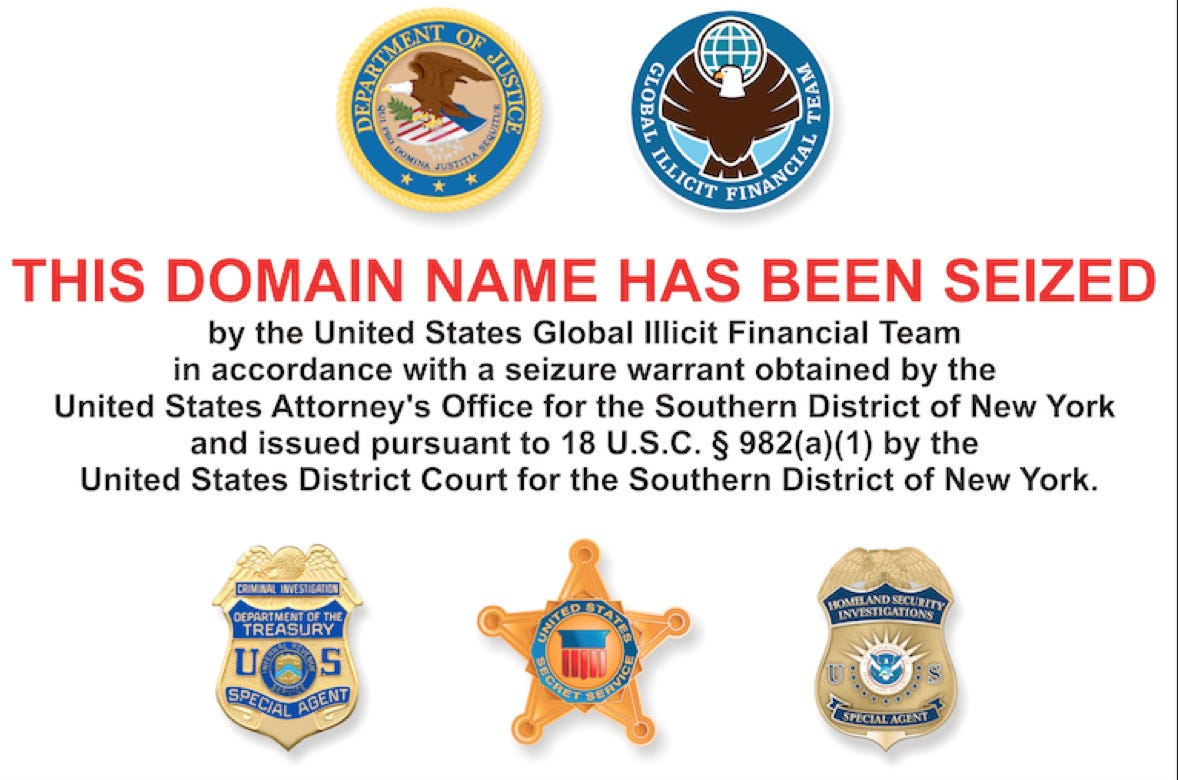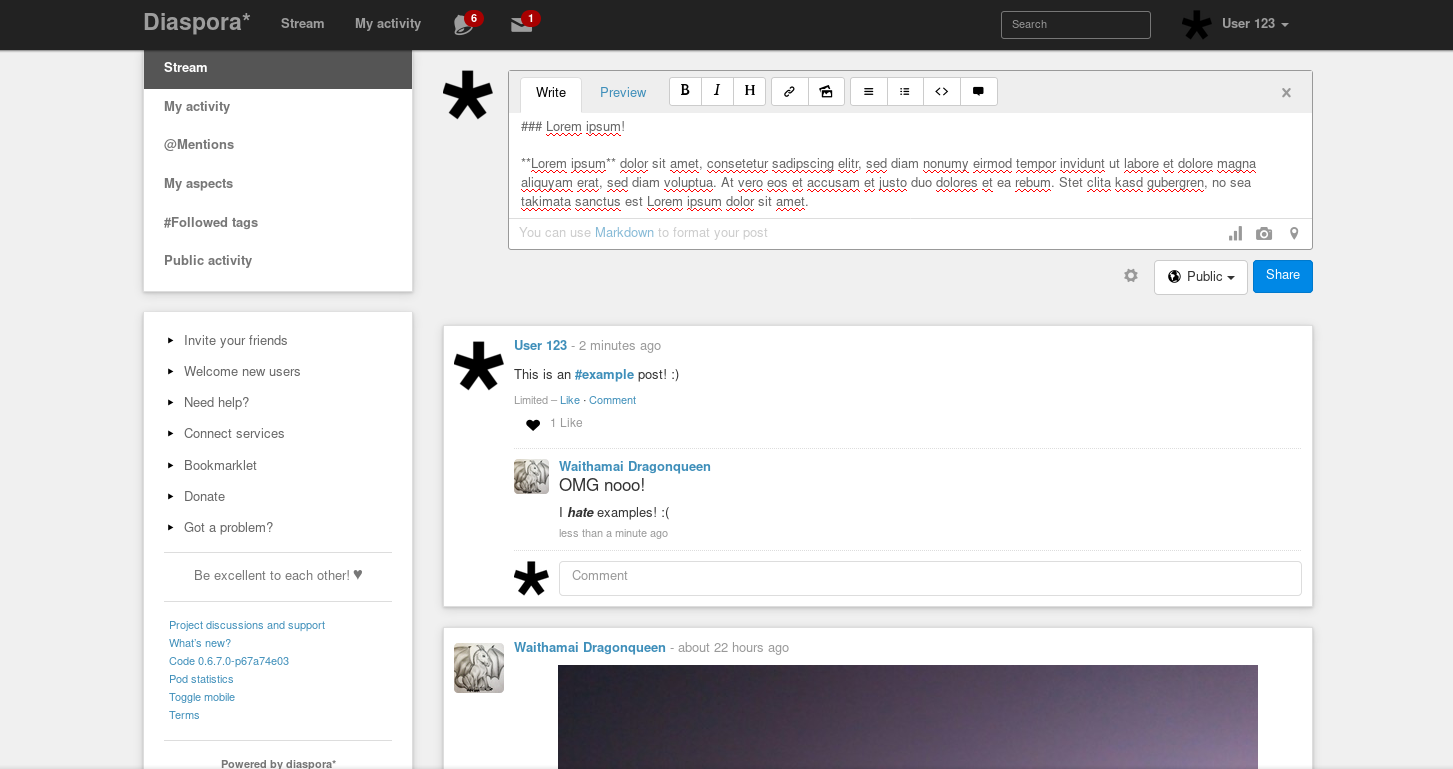It's time to ditch big tech. Here's how.
Freedom of speech is the cornerstone of a free society - and big tech companies and power hungry politicians are destroying it under the guise of "social progress" and "safety"
These days, we don’t read much history. Our society focuses on what’s happening now, and brushes off the wisdom of the ancients with “they never imagined our technology.” Their empires that rose and fell, their speculative bubbles, their wars, their struggles — the common sentiment is that none of it is applicable today.
I disagree.
Our history is full of the same battles being fought over and over, a slow advancement of knowledge and rational thought, and a gradual improvement of the human condition. One of the most important things our ancestors fought and died for was the freedom to speak one’s mind.
As the German philosopher Immanuel Kant stated,
“the freedom to make public use of one’s reason is the fundamental and equal right of any human being or citizen”.
Kant was not alone in his thinking. When the United States was formed as a nation, the founders believed it was so important, they literally made it the first law:
Congress shall make no law respecting an establishment of religion, or prohibiting the free exercise thereof; or abridging the freedom of speech, or of the press; or the right of the people peaceably to assemble, and to petition the Government for a redress of grievances.
And where are we today? Where can you speak freely? On college campuses, viewpoints deemed offensive are violently ejected. On big tech platforms, the wrong ideas will get you silenced or de-platformed. Within much of our business culture, the wrong ideas cost you your job. It began with the crazies like Alex Jones, and it went from there. Now Apple and Google are deleting apps *because* free speech is allowed (Parler, one of the fastest growing apps in the world, was removed from the Apple and Google app stores for refusing to moderate content).
It’s true that in the United States legal code free speech is still protected by law, but many of our politicians want to change that. The politicians and media do it under the guise of protecting us — from hate speech, from misinformation, from scams. Yet we know some forms of hate speech are allowed — namely speech against white men. We know memes and misinformation that attacks the opponents of big tech and neo liberals are permitted. And we know god damned well that big tech and the SEC are not protecting the public from scams.
Some argue that Facebook, Twitter, and the others are private companies, and thus can decide what information is allowed on their platforms. But they are also *public* companies organized under the laws of the United States of America. The internet is the modern newspaper or town square. It is the medium through which our thoughts are disseminated. If we are unable to use modern communication systems to express our thoughts in the manner guaranteed to us by the highest law in the land, and our government either cannot or will not force them to allow free speech, it is time we reject those platforms and companies completely.
Those who object may argue that allowing anyone to have a voice in the age of the internet may result in millions following a mad man. They point to Donald Trump and the mob who overran the Capitol as the example for why free expression cannot be allowed. That’s the price. That’s the risk. Freedom isn’t free, and it’s certainly dangerous, but it starts with open dialogue, rational communication, and most importantly consent. The greatest Roman Emperor, Marcus Aurelius once reflected on the importance of a polity administered with regard to equal rights and equal freedom of speech, and the idea of a kingly government which respects most of all the freedom of the governed.
The idea that free speech is essential isn’t new. It comes from the greatest thinkers, revolutionaries, and leaders in all of history. I think we can agree that we no longer have free speech. We live in an Orwellian dystopia where “what is truth”, as Pontius Pilate famously asked Jesus Christ, can be answered only by a small group of politically motivated fact checkers.
So what do we do?
The answer is simple. We vote with our feet. We leave. One at a time, we find new solutions where we are not censored. Once upon a time I volunteered for the Free Software Foundation and had the pleasure of meeting and working for Sir Richard Stallman (though I’m sure he does not remember me, I certainly remember him). Mr. Stallman warned us for decades on the threat that companies like Apple, Google, Microsoft, Twitter and Facebook posed to our freedom. Like many, I failed to heed the warnings, and I failed to do the work. It was more convenient to use the products of these technology companies.
However, as a technologist myself, I know that we can find alternatives. And where we cannot find them, we can make them. While there are many societal problems related to freedom, I’m going to focus on *just* freedom of speech.
We exclusively use platforms that value free speech
I chose to publish this article on SubStack because, while they don’t allow you to post porn or dox someone, they do have a much more absolutist view on protecting free speech than is typical, which is outlined in a policy which is written for humans, not lawyers. If it’s good enough for Glenn Greenwald, it’s good enough for me.
While I love Twitter, Apple, and Google, and use their products heavily, I think the time has come to move away from them. They do not value free speech. Google has long sense abandoned “Don’t be evil” from its ethos.
Here are some ideas.
We prefer web browsers over app stores
While imperfect, it is much harder for big tech to regulate what makes it onto the web. There are many hosting providers, and DNS level blocks are currently quite rare (though that might change). Publishing to the app store requires approval on every push and Google and Apple decide what you can publish and what you cannot publish. Not so with the web. It’s is also easier and faster to develop for the web.
By the way, try Tor, a privacy focused web browser.

We use alternate solutions to Twitter and Facebook
Discord, which we use for the community chat of my maritime data site TankerData.com, provides a great solution for private chat. Parler is a free speech platform, but so far their tech kind of sucks. It’s slow and crashes a lot. Gab I haven’t tried yet but the site was extremely slow (overloaded with record traffic they said) when I tried to log on.
Diaspora is a sort of privately hosted Facebook I’ve known about for years but have never tried. I’m going to set up a “pod” and see how it works.

We stop buying their products
I’ve been a Mac user for many years. I’m still rocking what was in 2014, top of the line, but I need a new computer. Purism has an interesting offering with a hard shell case and high quality hardware which I’m giving a shot. I’m a long time linux user, so a free operating system based on gnu doesn’t scare me.

We limit our usage when we can’t avoid their products, until an alternative can be found.
I have been using Gmail for a long time. I am a Project Fi customer. But quality has degraded over the years, I’m quite sure they bricked a phone of mine, and support absolutely sucks. Plus, my gmail is packed full of shit I don’t want and it’s probably easier to start over. My brother uses ProtonMail, I think I’ll give it a shot. I’ve been trying to change all my financial SMS over to something else, but VOIP providers can’t receive authentication SMS for banking 2FAs and many US companies won’t allow me to use my Panamanian number. I suppose I’m looking for a wireless carrier, or in an extreme case, dropping any platform where the logistics make it an issue.
Cipher provides a secure phone solution which is priced similarly to an iPhone and may be worth a shot.
Where solutions don’t exist, we create them
I don’t know how far this will go. As a pragmatist, I look first to find an existing solution to meet my need. However, if I don’t find what I need, as a technologist, I build it. I’m not saying “all these things have to be built”, but here is where I see the possible need, when the need arises:
Alternate infrastructure. In my experience infrastructure level providers like Amazon, Digital Ocean, and Rackspace very rarely censor how people use their infrastructure, outside of preventing spam and phishing scams. However, there are a few hosts with explicit free speech policies, like SwissMade.
Alternate DNS systems on private networks. In my experience, you only get a DNS level block in the most extreme cases (for example, when the DOJ shut down BTC-e). But who knows, that may become more common. So what’s the workaround? The idea is this. You turn on your computer and connect to the internet you want to connect to. This private net has its own DNS layer with its own addresses, it’s own domain extensions, etc. I have utilized networking level tools for doing this for private corporate networks with solutions like djbdns, which is just one example of a tool that can be used to create a private internet. I’m sure there are better solutions some of those who read this article can clue me in on.
Mass communication platforms. Technical design, reliability, and scalability are extremely important. Parler and Gab obviously haven’t figured this out. Twitter and Facebook handle hundreds of millions of users per day. This kind of extreme traffic requires careful design:
Load balancers, proxies, and backups
High performance static server
Static, compiled frontend
Lots of caching
CDNs
Database replication / autoscale
If you know you’re building something to handle a large user base, it’s best to start with a simple feature set and focus on scalability and reliability. Obviously, there’s a business case here. I believe users would pay a subscription fee to use a platform where they are not censored. Like a utility.
How to fund this
These things are all possible, and at some point in some role, I’ve done all of them, and at scale. I built ad tech for a platform that had over 500M monthly impressions. I’ve worked with very good people. I can build a team. But to compete with the tech giants, we need a team that rivals the tech giants. Help me build it. I can’t do it alone. But I know how to make it happen.
Let’s build a tech industry that values and enables open discourse. This is just an idea, not a sales pitch. Let me know your thoughts.
How to execute on this
- Hire someone and pay them to focus full time on systematically evaluating the quality of existing solutions. Research.
- Hire developers (if necessary) to develop solutions where there are market gaps.
- Hire marketing team and utilize existing networks to sell our approaches and solutions.
It’s simple, really, just requires focus. This is why big tech hires full time.
How to popularize our approaches and solutions
Marketing, marketing, marketing. My experience has been that there are many good technologists thinking about these problems and creating effective solutions, but few mass marketers. Popularization of alternatives to big tech requires continued usage of big tech to poach users. User retention requires superior technology.
Trust me, building good tech is not as hard as they make you believe. The only moat in software is focused talent.
Alternate: legal and political solutions
While I would love to create our own solutions, reforming existing systems is also a good approach when possible. I believe reform may be possible with in by making clear arguments and creating content that advocates the following:
- The importance of free speech and the rejection of the “it’s too dangerous to be free” arguments
- The enforcement of US free speech laws in US tech platforms
- Regulation that defines use of the internet as a basic right (like phone systems), and perhaps a public utility designation for key communication platforms



